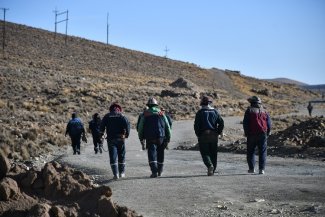The IMF, which has several hundred full-time economists on staff, once again failed to foresee a major shift in the global economy in recent weeks, notably the substantial slowdown of growth in large developing economies such as Brazil, China, India, Indonesia and Turkey.
Until very recently, the IMF hyped a "three-speed recovery" thesis, whereby emerging economies would be the motor for the global economy, pulling along slow-growth US and stagnant Europe.
The rapid slowdown in large developing countries and a slight uptick of growth in more advanced economies, especially the US, have forced the IMF to scrap its three-speed model.
The admission is contained in an initially confidential IMF briefing note for the G20 leaders’ meeting which took place in St Petersburg on 5-6 September, which the IMF was forced to release overnight after the contents were leaked to media.
In its note, the IMF states: "The impulse to global growth is expected to come mainly from the United States in the near term…. Downside risks remain and some have become more prominent…. This raises more serious risks for certain emerging economies with higher macroeconomic and financial vulnerabilities… the greatest worry may well be a prolonged period of sluggish global growth..."
The IMF’s briefing note to the G20 also contains several recommendations on how policymakers should react to the new economic developments.
However the IMF’s "humbling series of U-turns over its global economic assessment", to use the Financial Times’ characterisation, means that "its clout with presidents and prime ministers is likely to be diminished by the IMF’s failure to provide an accurate assessment of the world economy as recently as its spring meetings in April."
Two additional factors will probably entail that large emerging-economy countries will not turn to the IMF either for policy advice or financial assistance in the near future:
1. Most of these countries have accumulated important foreign exchange reserves and have adopted or are planning alternative forms of external financial assistance, such as the Chiang Mai Arrangement in East and Southeast Asia and the proposed BRICS bank.
2. Countries such as Turkey, Indonesia, Brazil and Argentina, which were forced to borrow from the IMF during financial crises in the late 1990s, still have strong memories of the destructive loan conditionality attached to the assistance and took steps for early repayment of the loans in the mid-2000s. The negative attitude to the IMF’s policies has been reinforced by the recession-inducing conditionality associated with the Fund’s current euro-zone lending programmes.









